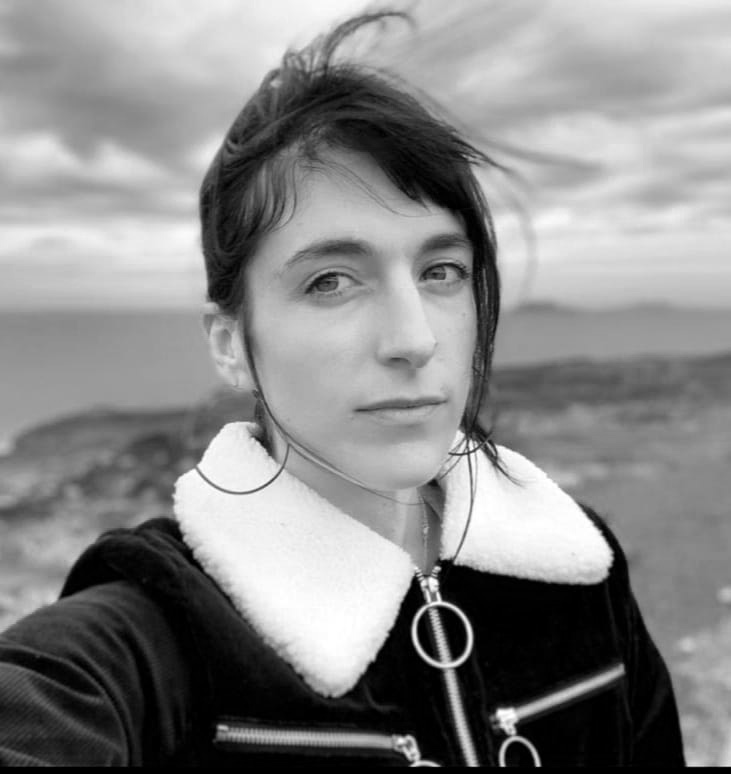Jeanette M. Bowles, 38
DrPH community health and prevention ’17
Postdoctoral fellow, Centre on Drug Policy Evaluation, St. Michael’s Hospital (Toronto, Canada)

Jeanette Bowles is an unapologetic disruptor. In 2019, as the executive director of Safehouse, a Philadelphia nonprofit that sought to provide drug overdose prevention services, she fought a bruising public battle to try to open the nation’s first above-ground supervised drug consumption site. Philadelphia has one of the nation’s highest overdose mortality rates and Bowles came to the fight armed with research and years of experience working on the front lines of the overdose crisis. Her PhD dissertation in public health had focused on the overdose crisis in the Kensington neighborhood of Philadelphia. As a member of Mayor Jim Kenney’s opioid task force in 2017 she was outspoken in her support for supervised consumption sites as a way to save lives. But the controversial plan stalled after running into federal opposition from the U.S. Department of Justice which preemptively sued, allowing federal agents to make arrests if the site opened. “The science says this will work,” says an unbowed Bowles, now a postdoctoral fellow at the Centre on Drug Policy Evaluation at St. Michael’s Hospital in Toronto. In some areas of Canada, supervised consumption sites are legal and operate in the open, she notes, and “people don’t die there.” Bowles describes her guiding principle in public health and social work as “honoring where people’s lives have brought them; not imposing our ideal of what gives life meaning, but honoring an individual’s idea.” She first saw the benefits of harm reduction with Project SAFE, a harm-reduction resource and advocacy organization for persons engaged in sex work and drug use. In 2013, after completing her master of social work at the University of Pennsylvania, Bowles led a summer course in Puerto Rico, collaborating with harm reduction organization Intercambios to provide new syringes and health services in the city of Fajardo. In 2017, she received an Honorable Mention, Outstanding Civic Engagement Award from the Graduate College at Drexel and began a postdoctoral fellowship at the University of California, San Diego. Bowles said she will continue to advocate for supervised consumption sites in the United States. “We live in a world where people use drugs and death shouldn’t be an acceptable outcome,” she says. “We need to find a way to prevent that.”
In her own words…
My Greatest Accomplishment: To me, it’s been my involvement with the Project SAFE collective in Philadelphia. We are a harm-reduction community that strives to elevate the voices of people who use drugs and do sex work. My education continually taught me that solutions to social and health issues are within the community, not outside of it, and so it is my job to listen. Through Project SAFE, this has been proven time and time again, and it is the guiding principle that has shaped my understanding of how to approach community health.
How Drexel Helped Me: Drexel’s Dornsife School of Public Health has faculty and fellow doctoral graduates who have remained great mentors, colleagues and friends. There are too many to name but I feel incredibly fortunate to have a community at Drexel who supported me as a student and after. I think it’s important that we practice what we preach (and teach), and the department of Community Health and Prevention genuinely cultivated a community that have rallied for me in different ways for 10 years (I started at Drexel in 2011).
What Success Looks Like to Me: Successfully advocating for resources to be diverted where, when and how a community sees fit; and/or uplifting the voices of marginalized communities. For example, when doing my dissertation, some participants told me afterward that they really appreciated the questions I asked them. Part of what success means to me is when research results in someone feeling heard and validated.
How the Past Year Has Influenced Me: The COVID-19 crisis illuminated areas of health and healthcare that are in deep need of transformation. Issues such as homelessness, drug overdose, the harms of living in incarceration, and stigma and discrimination were exacerbated by COVID-19. My hope as a society is that we all be influenced by these injustices and seek to remediate harms by working directly with communities on solutions.
My Top Post-Pandemic Plan: I don’t believe there will be a post-pandemic world where we resume a life that looks similar to pre-COVID-19. Coronaviruses have been around for a very long time. And, as stated above, we should use the lessons learned from this time to advocate for a better society, rather than to the status quo. The scientific community rallied to create vaccines that could facilitate reducing COVID mortality and return to social joys, while also studying the sociological impacts of the pandemic. I plan to remain a part of the scientific community that fervently addresses health issues in order to promote a more just society.


